Organisation
The KIN was established in 2023 as a coordinating body of NWO (Dutch Research Council) with the aim of making the best possible use of Dutch science to prevent the worst irreversible consequences of climate change. Within NWO, KIN has its own mission and a unique approach to achieving this goal. NWO provides us with the knowledge and expertise of a reliable organisation that, as a national science funder, plays a pivotal role in the scientific system. KIN was founded by NWO and KNAW, with broad support from all types of knowledge institutions. This enables us to involve scientists from a wide range of backgrounds, expertise and disciplines in our activities. KIN also functions as a network organisation. Within our KIN Pact community, scientists and non-scientists work together to accelerate system change.
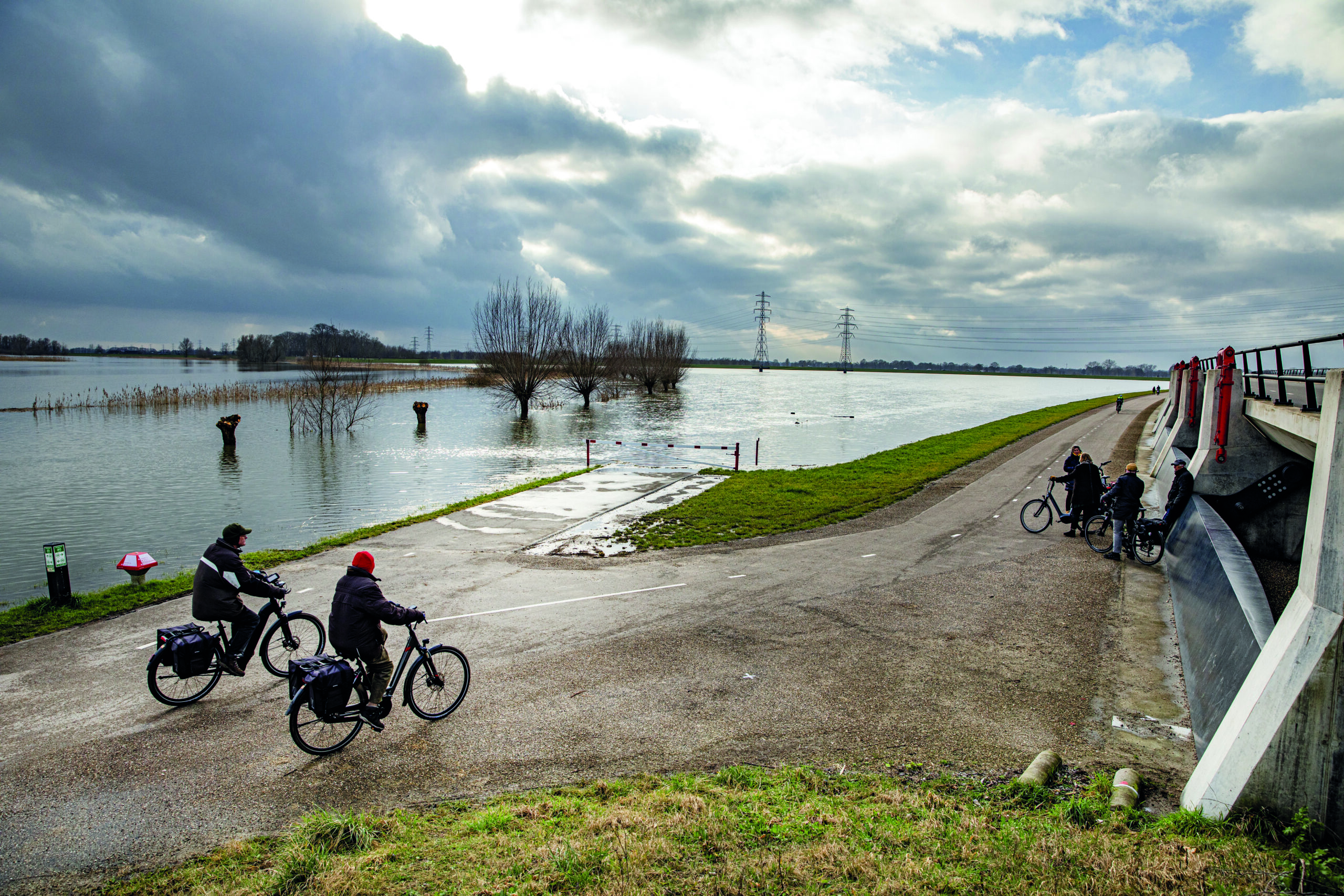
How is KIN organised?
KIN consists of a small permanent team that forms the coordinating body under the umbrella of the Dutch Research Council and the KIN Pact.
The coordinating body
The KIN team consists of a managing director, two scientific figureheads and a small staff. The figureheads act as scientific points of contact and represent KIN externally to the scientific community and policymakers. The general director is responsible for all KIN activities.
The team within the steering body promotes national cohesion and cooperation in transition-oriented climate research and organises activities aimed at knowledge development and transdisciplinary collaboration, including within the Pact Community.
The KIN Pact
The Pact is the KIN community within which organisations and individual members commit to accelerating system change through mutual coordination, collaboration, knowledge sharing and prioritisation of issues. Representatives of the Pact are united in the Strategy and Advisory Council (SAR), which advises the KIN on strategic and social priorities.
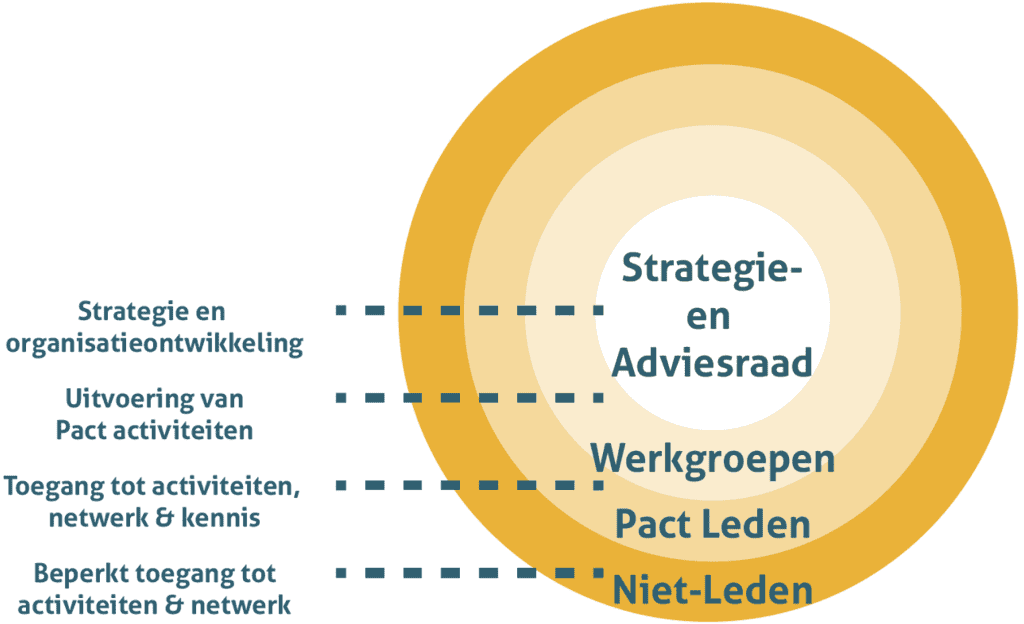
Governance
KIN Steering Group
The KIN is managed by a small steering group, which takes decisions on behalf of all knowledge institutions regarding programmes and activities that the KIN finances and undertakes. The KIN is managed by a small steering group, which takes decisions on behalf of all knowledge institutions regarding programmes and activities that the KIN finances and undertakes. The steering group represents experience and expertise from the public, social, scientific and private sectors. All directors have a strong affinity with science. The KIN steering group operates under the mandate of the NWO Board of Directors.
Strategy and Advisory Council (SAR)
The SAR has two important tasks: (1) advising the KIN on which issues from the social partners they should focus on by identifying and prioritising them, and (2) providing input for the strategic development of the Pact. The SAR represents a diverse and considerable amount of experience in climate transitions. This enables the SAR to contribute a wide range of societal perspectives on climate transitions, such as perspectives from psychology, the financial sector, water management, policy and energy transition.
Read more about the organisation and governance of the KIN Pact here.
Programme Committee Global Transitions
The Programme Committee monitors the quality of the activities within the Global Transitions programme line. It acts as a quality monitor for the programmes, focusing on both scientific and social quality and the potential impact of the activities. The Programme Committee represents a diversity of national and international knowledge and expertise from various sectors.
Read more about the Programme Committee Global Transitions here.
There is also a supervisory committee for the ACT work programme. A programme committee is currently being set up for our Knowledge in Action programmes.
Sounding board group
A sounding board group comprising directors from all types of knowledge institutions ensures broad support for the activities of the KIN. The sounding board group includes members from universities of applied sciences, universities, university medical centres, NWO and KNAW, TO2 and government knowledge institutions.
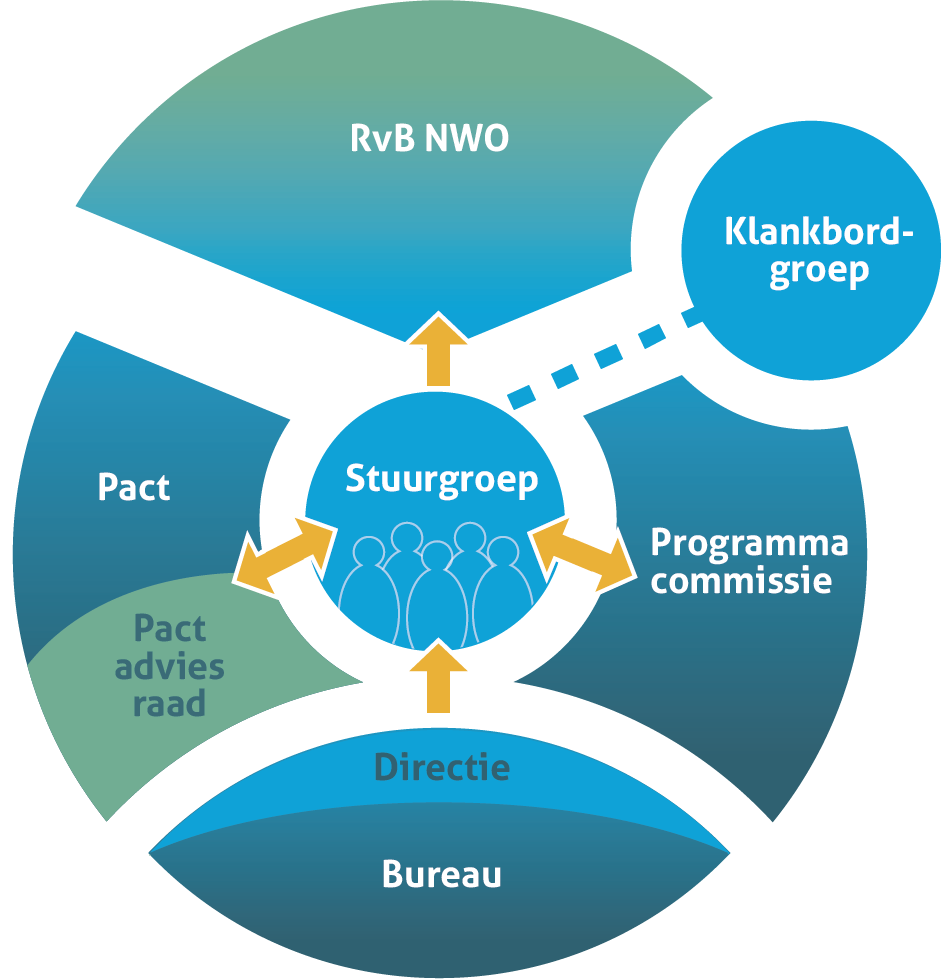
Why was KIN established?
The climate is changing, and this is becoming increasingly apparent. We notice it in the weather, in the behaviour of nature, in water levels, and in our daily expenses. Citizens, social partners and governments feel the urgency to do something about these changes, but are encountering barriers. On the one hand, specialist knowledge is needed, and on the other, integrated, future-proof knowledge for large, complex issues. This knowledge is often fragmented, does not translate into practice and is often focused on the short term.
What is needed is knowledge about how to act in a rapidly changing world. Various national and international reports, as well as politics and science, are calling for systemic change. This, and the emergence of alternatives to unsustainable, unjust systems, calls for long-term solutions. Collaboration between science and practice, across different disciplines, is essential in this regard.
It is time for new perspectives, forms of knowledge development and financing structures. The KIN is bringing movement to this. The role of the KIN is to better connect knowledge and practice and to ensure national coordination in climate research. This also applies to regions that have contributed least to climate change but are most vulnerable to it.
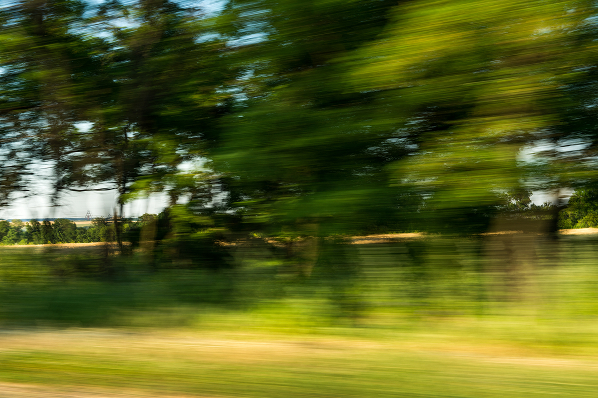
Who founded the KIN?
In academia and beyond, the urgency to act on climate change is palpable. That is why KNAW and NWO established a climate research task force in 2022. Twenty-three scientists from various backgrounds issued a recommendation on how science can accelerate the transition to a climate-resilient future and a climate-neutral society in the coming years. The advisory report of this task force, chaired by Heleen de Coninck (Professor of Socio-technical Innovation and Climate Change, TUE), forms the basis for the establishment of the KIN. In the report, the advisory committee concludes that we can still prevent the worst irreversible consequences of climate change. However, this will only be possible if scientists and relevant social actors work together intensively to accelerate system transitions. The committee therefore recommended the establishment of a new network institute for science-wide climate research focused on transitions.
This advice and more about the ambitions, mission and goals of the KIN at the time of its establishment can be found in our founding document.
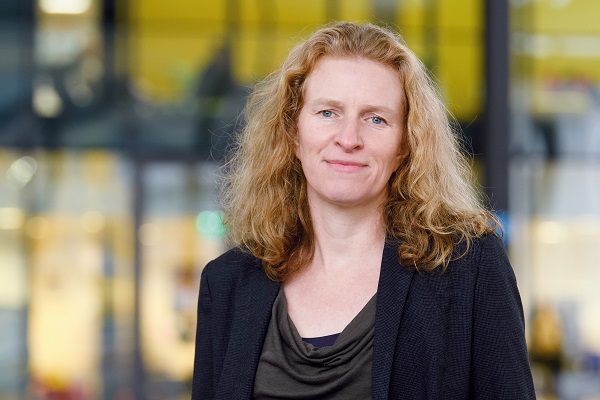
Do you have any questions?
Would you also like to contribute to a climate-proof world or learn more about KIN? Please contact us.

Founding partners
Many organisations and individuals contributed to the establishment of the KIN. As initiators, NWO and KNAW made the development phase possible by providing financial resources for the initial activities, deploying personnel and offering strategic support. ZonMW also contributed to the KIN’s support activities.
In addition, various groups of experts collaborated with people from knowledge institutions, government institutions and civil society organisations, contributing to the various working groups by writing and thinking along with them.
The KIN was established with the support of
– Dutch Research Council (NWO)
– Royal Netherlands Academy of Arts and Sciences (KNAW)
– Universities of the Netherlands (UNL) Association of Universities of Applied Sciences (VH)
– Netherlands Federation of University Medical Centres (NFU)
– Deltares
– Netherlands Organisation for Applied Scientific Research (TNO)
– Wageningen University & Research
– Netherlands Aerospace Centre (NLR)
– National Institute for Public Health and the Environment (RIVM)
– Central Bureau of Statistics (CBS)
– Scientific Research and Documentation Centre (WODC)
– Naturalis Biodiversity Centre
– Cultural Heritage Agency of the Netherlands (RCE)
– Dutch Institute for Public Safety (NIPV)
– Royal Netherlands Meteorological Institute (KNMI)
– Netherlands Institute for Social Research (SCP)

